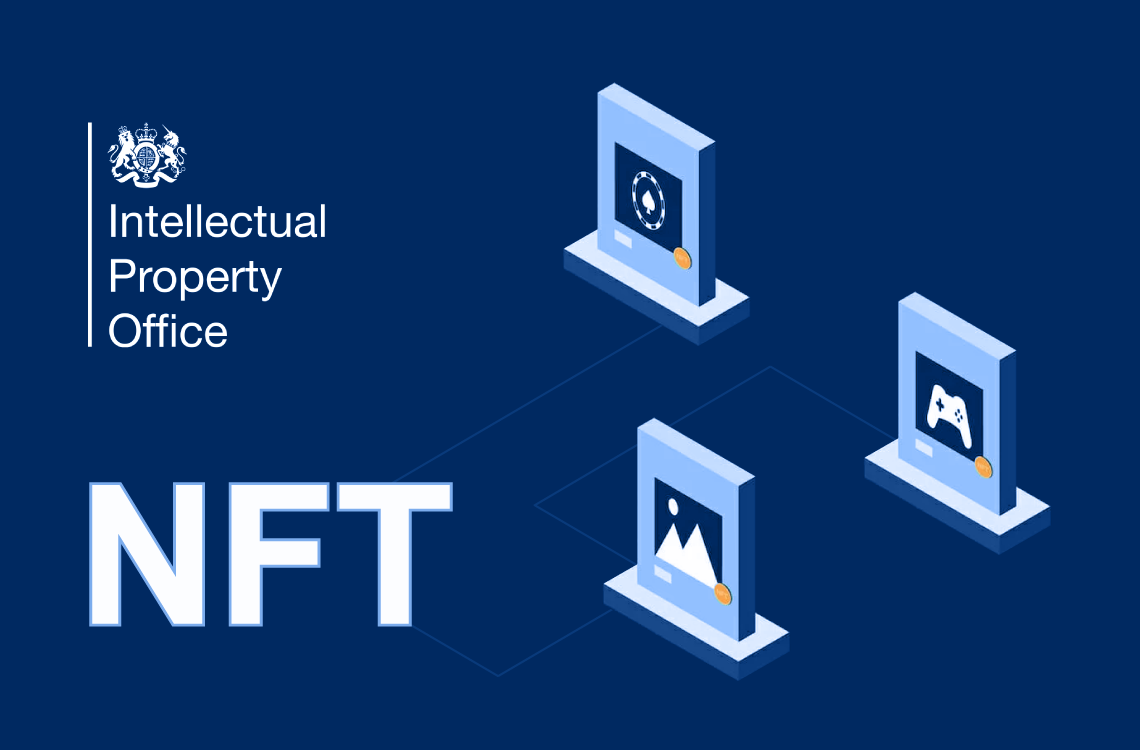The United Kingdom Intellectual Property Office (UK IPO) has recently issued a Practice Amendment Notice (PAN) to clarify the classification of non-fungible tokens (NFTs) and related goods and services in trademark applications.
This move is in response to the growing number of applications and requests for guidance on the matter, as NFTs continue to gain traction in various industries.
Clarifying the classification of NFTs
NFTs have emerged from cryptocurrency networks as unique digital tokens representing ownership of virtual or physical assets, such as art, collectibles, and gaming items.
Due to the rapidly evolving nature of NFT technology, the UK IPO aims to provide clear guidelines to assist applicants in the classification process, with plans to update the guidance as new developments arise.
As “NFT” alone is considered inherently vague, the UK IPO will not accept it as a standalone classification term. Instead, applicants must specify the asset to which the NFT is related.
For instance, terminology such as “digital art authenticated by non-fungible tokens [NFTs]” or “downloadable digital files authenticated by non-fungible tokens [NFTs]” will be accepted in class 9 of the Nice Classification system.
Incorporating NFTs in physical goods and services in the UK
While NFTs are primarily associated with digital assets, they can also be used to authenticate physical goods. Consequently, the UK IPO will accept clearly defined physical goods authenticated by NFTs in the appropriate goods class.
For example, “artwork, authenticated by non-fungible tokens [NFTs]” would be classified under class 16, while “handbags, authenticated by non-fungible tokens [NFTs]” would be placed in class 18.
Furthermore, the UK IPO will accept NFT-related terminology in class 35 for retail services and online marketplaces.
Virtual services and the Metaverse
The PAN also addresses the classification of virtual goods and services, including those provided in the metaverse. Virtual goods, which primarily consist of digital images or data, will be classified under class 9 if they are clearly defined, such as “downloadable virtual clothing, footwear, or headgear.”
During the pandemic, many traditionally in-person services shifted to virtual means via internet-based applications. The UK IPO will continue to accept such services, including those provided in the metaverse, a digital reality where users can access virtual worlds and interact with others.
Examples of acceptable terminology in this area include “education and training services provided via the metaverse [class 41]” and “conducting interactive auctions via the metaverse [class 35].”
In cases where the provision of services via the metaverse is mentioned but not immediately apparent, UK IPO examiners will seek clarification from applicants.
If an examiner considers a trademark application’s specification to be vague, they will raise a statement of objection under rule 8(2)(b) of the Trade Mark Rules 2008. Applicants will have two months to file written observations in response to or request a hearing.
This progressive approach by the UK IPO sets a standard for the classification of NFTs in trademarks, providing much-needed guidance in the rapidly changing world of digital assets and virtual goods and services.





